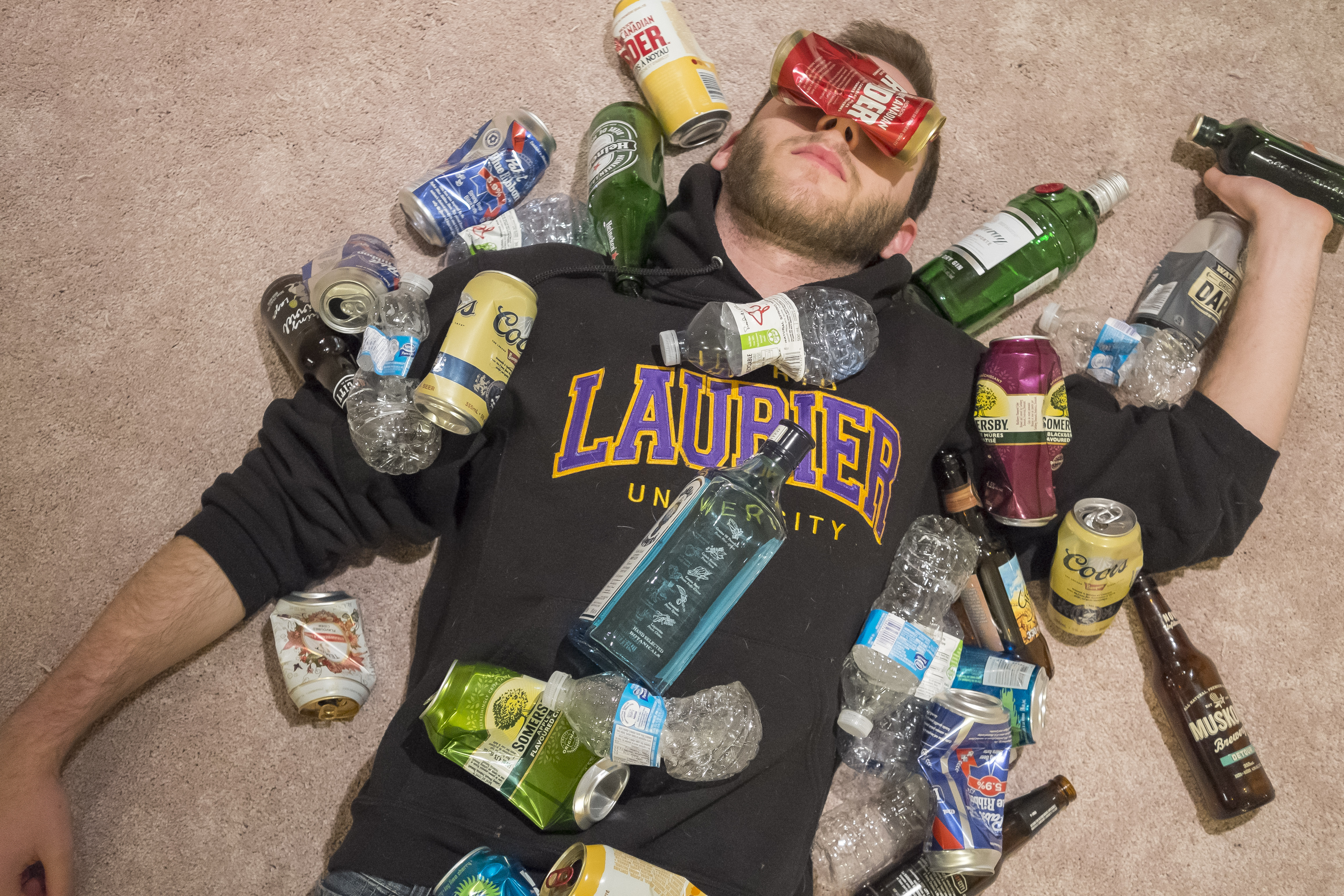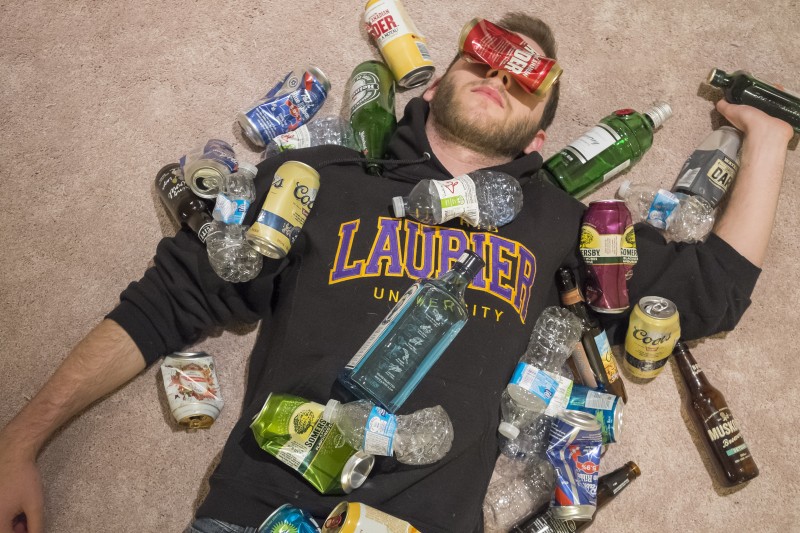Exploring drinking culture at WLU

For many students, coming into university is a new environment that welcomes different cultures. Within that is the culture of drinking.

For many students, coming into university is a new environment that welcomes different cultures. Within that is the culture of drinking.
Ian Culbert, the executive director of the Canadian Public Health Association, explained there are a few different reasons students can feel pressured to join the drinking culture.
Firstly, for many students this is their first time away from home and the limitations are gone. However, for some students, drinking could be a stress reliever from the pressures of university.
“Even within first year, it can go from ‘let’s have fun’ and ‘let’s have a party’ to ‘oh my goodness, I’ve got midterms coming up and my grades aren’t that great,’ ” he said.
Culbert explained the dangers of binge drinking which students could experience from falling into drinking culture. Immediate impacts can be potentially serious, such as alcohol poisoning and behaviours such as unprotected sex or drinking and driving.
However he especially warned students against allowing drinking culture to lead to being a coping method.
“Over the longer term, if a young person is using alcohol to numb an emotion, that’s the first step on the pathway toward addiction,” Culbert said.
Anne Wilson, a psychology professor at Wilfrid Laurier University who does research in social psychology, explained a phenomenon called pluralistic ignorance. This idea explains how a majority of group members privately reject a norm, but incorrectly assume that most others accept it and therefore go along with it. Drinking culture, therefore, can be an example of why students may not believe in binge drinking but go along with it anyway.
“So is this what happens in universities? This is probably part of it,” Wilson explained. “There are other factors that can lead to being attracted to partying and drinking and I think that sometimes there’s that perception of ‘this is what other people are doing,’ so basic conformity processes.”
Part of the belief that “everyone is doing it” in drinking culture stems from the way public events are portrayed versus private events.
“We see the people that go out and go partying because they’re very visible. They’re right in your face whether you like it or not. And the people who decide to have a quiet evening at home or decide to go to the library, you don’t see them as much because they’re a lot more private,” said Wilson.
Stephanie Wetherald, a fourth-year business student at Laurier, went through her Orientation Week in 2011 and two Winter Carnivals since then without drinking.
While she has been able to avoid the pressures of the drinking culture, she understands why students at Laurier may feel like they need to participate.
“Laurier has this reputation of having students that like to have a lot of fun, like most universities,” she explained.
“I think it is that joining that culture, some people assume that it’s just something you do. It’s not something you have to do, but a lot of people just assume that it’s something you do in university.”
Wetherald explained simple techniques such as holding onto a water bottle during parties or being around a group of friends that don’t always want to go out can help break the stereotypes.
Culbert encouraged students who do not want to go out every weekend to find a circle of friends that are interested in different alternative methods of fun.
He also recognizes there is an effort to change the culture around drinking.
“Because they are dealing with 18-year-olds, still immature, on campus — it’s [sometimes] illegal for them to drink so creating alcohol-free environments so they can still have fun, still stay on campus, but alcohol simply isn’t part of the equation,” he said.
“It’s creating those options where you’re actually normalizing sober options as opposed to normalizing alcoholic behaviours.”


